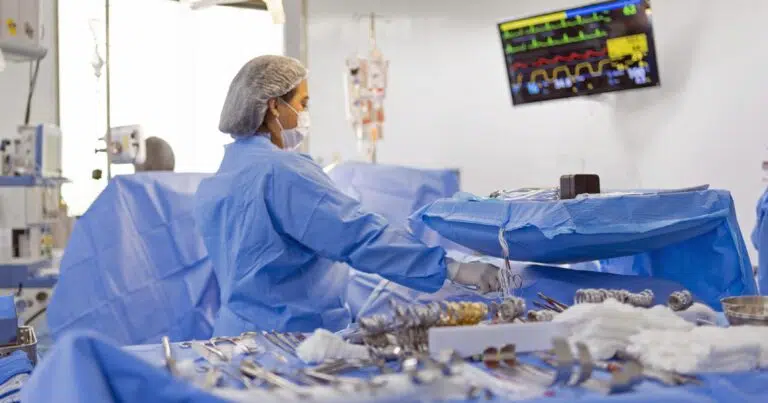CVOR Tech Career Guide
Looking for a different career guide?
Overview
A Cardiovascular Operating Room Technologist, also known as a CVOR Technologist, plays a vital role in the operating room during cardiovascular surgical procedures. These highly skilled professionals assist the surgical team in the preparation, maintenance and monitoring of equipment, as well as in patient care. They ensure that the operating room is well-equipped and sterile, handle instruments and
Education
To become a Cardiovascular Operating Room Technologist, you will need formal education and specialized training. Most employers require a high school diploma or equivalent, followed by completion of an accredited cardiovascular technology program. These programs typically take 1-2 years to complete and are offered by community colleges, technical schools and hospitals. Courses cover topics such as anatomy, physiology, medical terminology,
Qualifications

Skills
To succeed as a Staff or Travel CVOR Tech, you need a combination of knowledge, hard and soft skills and abilities. A strong understanding of cardiovascular anatomy and physiology is essential, as is the ability to operate and troubleshoot specialized equipment used during procedures. Attention to detail, manual dexterity and the ability to remain calm under pressure is
Responsibilities
The responsibilities of a Cardiovascular Operating Room Technologist can vary depending on the specific facility and surgical team. However, typical duties include preparing the operating room, ensuring sterile conditions, organizing and maintaining equipment and supplies, assisting with patient positioning and prepping, monitoring patient vital signs, operating specialized equipment and providing immediate assistance during emergencies.
Salary Insights
The average salary for a CVOR Tech is $2,297.99 per week.
Last updated on December 19, 2025. Based on active jobs on Vivian.com.
Pros & Cons
Like any healthcare specialty, becoming a Cardiovascular Operating Room Technologist has its pros and cons. Some benefits of this profession include the opportunity to work in a dynamic and challenging environment, the ability to directly contribute to patient care and outcomes and the potential for career advancement. Cardiovascular surgeries can be complex and demanding, which provides an ongoing learning experience
Some of the content on this page was enhanced using artificial intelligence.
Join over 1 million healthcare workers that are getting a head start with Vivian.
Join Vivian





